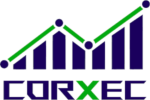Economic Nexus
The Supreme Court ruling on the South Dakota v. Wayfair case in 2018 changed how out-of-state retailers collect and remit sales taxes in each state. At a minimum, states can mandate that businesses without a physical presence in a state and with more than 200 transactions or $100,000 in-state sales can be required to collect and remit sales taxes to the state where the goods are purchased.
Because sales tax regulations vary by state, each state has its own rules, registration process, and tax rate for out-of-state retailers that reach economic nexus in that state. In most cases, when a remote seller or marketplace facilitator without a physical presence in a state has nexus in that state, it must obtain a seller’s permit and collect and remit the state’s sales tax on each taxable purchase.
Nearly every state has enacted nexus laws that affect remote sellers. Below is a state-by-state guide to the economic thresholds and rules established for out-of-state sellers and marketplace facilitators.

Income Nexus
If you have employees working and/or residing in another state, then you have income nexus in that state. Nexus occurs when your employee conducts work in a different state, whether or not the employee resides in that state. As an employer, you must comply with the other state’s payroll tax regulations.
To better understand the laws in each state and the tax guidance for determining taxation, we’ve included each state’s income/payroll tax rates. These rules may also ply to employees who work in multiple states or travel for work, so it’s smart to know how each state manages payroll taxes. Most businesses hire an expert to handle registration and payroll regulations to stay compliant.
In addition, many states have reciprocal agreements with other states, so make sure you know which states participate. For example, Arizona has reciprocal taxation agreements with California, Indiana, Oregon, and Virginia. Therefore, residents in these states who conduct business in Arizona can request an exemption from income tax withholding in Arizona.
Our State-by-State Guide for Managing Nexus
Alabama
Alabama Economic Nexus
Alabama requires all remote sellers and marketplace facilitators to collect and remit sales and use taxes to the State of Alabama.
What Does Alabama Require of Remote Sellers?
- A business selling a product or service subject to Alabama’s remote seller’s rule must apply for a license through the Alabama Department of Revenue (ALDOR). (Depending on the business, additional business/occupational licenses may be required.)
- Remote sellers and marketplace facilitators meeting the sales threshold can register for the Simplified Sellers Use Tax (SSUT) program.
- The Simplified Seller Use Tax Remittance Act allows eligible sellers to participate in a program to collect, report and remit a flat 8% sellers use tax on all sales made in Alabama.
- Remote sellers and marketplace facilitators apply for participation in the SSUT program by clicking on the Obtain a new tax account link on the My Alabama Taxes (MAT) website.
- SSUT participants must file monthly returns and remit monthly payments through MAT.
- Alabama’s voluntary disclosure program allows unregistered taxpayers to self-disclose and pay previously unpaid or underpaid tax liabilities without penalties.
What is a Remote Seller?
A remote seller is any business or person that does not have a physical presence making direct sales to Alabama customers and shipping products into the state.
What is a Marketplace Facilitator?
A marketplace facilitator is a business that contracts with marketplace sellers to facilitate the sale of the marketplace seller’s products through a physical or electronic marketplace.
What is a Marketplace Seller?
A marketplace seller is a person or business that makes sales through any physical or electronic marketplaces operated by a marketplace facilitator.
What is Economic Nexus in Alabama?
- All remote sellers directly selling over the $250,000 threshold of total retail sales delivered into Alabama the previous calendar year must collect and remit taxes on sales into Alabama.
- Marketplace facilitators with Alabama marketplace sales of more than $250,000 must collect tax on sales made by or on behalf of its third-party sellers. Marketplace sellers do not need to collect tax on transactions when a marketplace facilitator is collecting and remitting for them.
What Are the Other Sales and Use Tax Requirements for Remote Sellers in Alabama?
- Remote sellers must annually renew their Tax Account License.
- Many localities apply their own additional sales taxes; however, participants in SSUT pay only the 8% flat tax regardless of the locality.
- Failure to pay sales tax is a felony in Alabama. The penalty is up to a $10,000 fine and/or imprisonment for up to 5 years.
Alabama State Payroll Taxes
- Alabama manages state payroll taxes through the Department of Revenue.
- Alabama has a progressive income tax from 2% to 5%. Depending on where your employees live or work, some cities in Alabama also impose a levy on income taxes from 0% to 2%.
- Alabama State Unemployment Insurance (SUI) varies by calendar year. 2022 rates range from 0.725% to 7.625%. New employers pay a flat rate of 2.7%.
- Alabama does not offer state disability insurance.
- Alabama employers must register with the Alabama Department of Revenue for state withholdings (payroll taxes) and the Alabama Department of Labor for unemployment taxes.
- For more on income nexus, see Alabama Payroll Tax FAQs.
Alaska
Alaska Economic Nexus
Alaska requires remote sellers and marketplace facilitators with economic nexus to collect and remit sales and use taxes to the State of Alaska.
What Does Alaska Require of Remote Sellers?
- Remote sellers and marketplace facilitators with economic nexus must register through Alaska Remote Sellers Sales Tax Commission (ARSSTC) portal.
- Although there is no statewide sales tax in Alaska, several localities have their own sales tax, running as high as 7.5%.
What is a Remote Seller?
A remote seller is any business or person that does not have a physical presence making direct sales to Alaska customers and shipping products into Alaska.
What is a Marketplace Facilitator?
A marketplace facilitator is a business that contracts with marketplace sellers to facilitate the sale of the marketplace seller’s products through a physical or electronic marketplace. The marketplace facilitator collects payment on the sales and remits the tax to Alaska.
What is a Marketplace Seller?
A marketplace seller is a person or business that makes sales through any physical or electronic marketplaces operated by a marketplace facilitator. If the marketplace seller only sells in Alaska through a marketplace facilitator, the marketplace seller must file a Marketplace Seller Affidavit which then places the sales tax responsibility on the marketplace facilitator.
What is Economic Nexus in Alaska?
- Remote sellers and marketplace facilitators that meet the statewide threshold of $100,000 gross sales or 200 individual transactions annually into Alaska this year (or the previous year) must register with ARSSTC.
- To calculate the economic threshold, use all sales into Alaska, including marketplace facilitator sales, regardless of destination or taxability status of the end buyer.
- Marketplace sellers do not need to collect tax on transactions when a marketplace facilitator is collecting and remitting for them.
- Once a seller has met the economic threshold, they must register with the ARSSTC filing portal within 30 days.
What Are the Other Sales and Use Tax Requirements for Remote Sellers in Alaska?
- Remote sellers must file sales taxes monthly unless agreed upon with the ARSSTC.
- Remote sellers must file sales taxes, whether the taxes were collected or not.
- All filings and taxes must be remitted electronically through the ARSSTC filing portal.
- Sellers must notify the ARSSTC within 30 days of ceasing sales in Alaska or closing the business.
- The penalty for failing to pay sales tax in Alaska depends on the municipality. For example, in Juneau, failure to pay constitutes a misdemeanor. A penalty of $25 for all late returns and a penalty of 5% per month (not to exceed a total penalty of 25%) is imposed in addition to interest at the rate of 10% per annum.
Alaska State Payroll Taxes
- Alaska has no state income tax, so employers are not required to register for state payroll taxes.
- Alaska employers are responsible for paying a varying unemployment tax rate of 1% to 5.4% on a taxable wage base of $45,200. New employers pay a flat tax of 3%. (Alaska’s UI tax rates fluctuate quarterly based on the employer’s gross payroll.)
- Employees in Alaska also contribute to Unemployment Insurance. Employers are required to withhold 0.50% per employee on a taxable wage base of $45,200.
- Alaska employers must register with the Alaska Department of Labor and Workforce Development to receive an Alaska Employer Security Tax Account Number. You must provide your account number when filing returns and making deposits in all electronic and paper filings.
- For more on income nexus, see Alaska Payroll Tax FAQs.
Arizona
Arizona Economic Nexus
Arizona requires remote sellers and marketplace facilitators with economic nexus to file and pay transaction privilege tax (TPT).
What Does Arizona Require of Remote Sellers?
- The Arizona Privilege Tax (sales tax) is the tax a vendor pays for the privilege of doing business in the state.
- A business selling a product or service subject to Arizona’s TPT must apply for a license through the Arizona Department of Revenue (ADOR). (Depending on the business, additional business/occupational licenses may be required.)
- The privilege tax is paid to the ADOR. Tax rates vary depending on the business, business’s activities, and the city and county where its located.
- Arizona’s voluntary disclosure program allows unregistered taxpayers to self-disclose and pay previously unpaid or underpaid tax liabilities without penalties in most cases.
What is a Remote Seller?
A remote seller is any business or person that does not have a physical presence making direct sales to Arizona customers and shipping products into Arizona.
What is a Marketplace Facilitator?
A marketplace facilitator is a business that contracts with marketplace sellers to facilitate the sale of the marketplace seller’s products through a physical or electronic marketplace.
What is a Marketplace Seller?
A marketplace seller is a business or person that only makes sales in Arizona through a marketplace facilitator (e.g., a third-party website). The marketplace facilitator collects payment on the sales and remits the tax to Arizona.
What is Economic Nexus in Arizona?
- Remote sellers and marketplace facilitators must collect Arizona sales tax only if the remote seller has $100,000 or more in gross revenue during the current or previous calendar year.
- Persons and businesses with economic nexus must pay the TPT.
- Marketplace sellers do not need to collect TPT on transactions when a marketplace facilitator collects and remits TPT for them.
- Failure to pay sales tax in Arizona is a class 5 felony.
Arizona State Payroll Taxes
- Businesses must register with the Arizona Department of Revenue (ADOR) and the Arizona Department of Economic Security (DES) before conducting any taxable business activity in Arizona.
- Arizona income taxes are broken into five brackets based on income, with rates ranging from 2.59% to 4.5%. Arizona will phase in a flat 2.5% tax by 2024.
- Arizona employers pay Unemployment Insurance between 0.08% to 20.93% on the first $7,000 each employee earns. All new employers pay a flat rate of 2.0%.
- For more on income nexus, see Arizona Payroll Tax FAQs.
Arkansas
Arkansas Economic Nexus
Arkansas requires all remote sellers and marketplace facilitators with economic nexus to collect and remit sales and use taxes to the State of Arkansas.
What does Arkansas require of remote sellers?
- Remote sellers and marketplace facilitators selling a product or service subject to Arkansas’s sales and use taxes must register through the Arkansas Taxpayer Access Point (ATAP).
- The Arkansas sales tax rate is 6.5%. Local cities and counties mandate additional sales taxes.
- Remote sellers meeting economic nexus in Arkansas can register for sales and tax use in Arkansas directly through ATAP or register for multiple states through the Streamlined Sales Tax Registration System.
- The Streamlined Sales Tax System allows remote sellers to submit one application to collect and remit sales and use taxes in 24 Streamlined member states.
- See the Streamlined Sales Tax Governing Board for more information on Marketplace Sellers and Marketplace Facilitators registration in the Streamlined States.
- Arkansas’ voluntary disclosure program provides unregistered taxpayers the opportunity to self-disclose and pay previously unpaid or underpaid tax liabilities without penalties in most cases.
What is a Remote Seller?
A remote seller is any business or person that does not have a physical presence making direct sales to Arkansas customers and shipping products into Arkansas.
What is a Marketplace Facilitator?
A marketplace facilitator is a business that contracts with marketplace sellers to facilitate the sale of the marketplace seller’s products through a physical or electronic marketplace.
What is a Marketplace Seller?
A marketplace seller is a business or person that only makes sales in Arkansas through a marketplace facilitator (e.g., a third-party website). The marketplace facilitator collects payment on the sales and remits the tax to Arkansas.
What is Economic Nexus in Arkansas?
- Remote sellers and marketplace facilitators that meet the statewide threshold of $100,000 gross sales or 200 individual transactions annually into Arkansas this year (or the previous year) must register with the Arkansas Taxpayer Access Point.
- To determine if your business has economic nexus in Arkansas, you can download and submit an Arkansas Economic Nexus questionnaire.
- Remote sellers and marketplace facilitators must file and pay sales and use taxes monthly for any month they have sales in Arkansas.
- Marketplace sellers do not need to collect sales and use taxes on transactions when a marketplace facilitator collects and remits for them.
- Remote sellers registered with the Streamlined Sales Tax system may use a Certified Service Provider (CSP) to perform all the seller’s sales and use tax functions other than the seller’s obligation to remit tax on its purchases. A CSP is free for sellers and allows a business to outsource most of its sales tax administration responsibilities.
- Failure to pay sales tax in Arkansas is a class D felony.
Arkansas State Payroll Taxes
- Employers must register new employees with the Arkansas New Hire Reporting Center, the Arkansas Department of Finance and Administration, and the Department of Workforce Services.
- Arkansas has a 2022 progressive income tax rate ranging from 2% to 5.5%, with various tax brackets.
- Employers pay a varying unemployment tax rate of 0.3% to 14.2% on a taxable wage base of $10,000. New employers pay a flat tax of 3.1% (includes a 0.3% stabilization tax).
- For more on income nexus, see Arkansas Payroll Tax FAQs.
California
California Economic Nexus
California requires all remote sellers and marketplace facilitators with economic nexus to register and remit sales tax to the State of California.
What Does California Require of Remote Sellers?
- California’s Assembly Bill No. (AB) 147 requires retailers outside of California (remote sellers) to register with the California Department of Tax and Fee Administration (CDTFA) for a seller’s permit and to collect and submit taxes.
- California’s statewide tax rate is 7.25%, plus any additional sales tax mandated by local districts. Add-on district tax rates range from 0.10% to 1.00%, and some areas may have more than one district tax. Sellers are responsible for collecting and paying the applicable district taxes.
- The CDTFA designates the filing frequency (either monthly, quarterly, fiscal yearly, or calendar yearly) based on the seller or marketplace facilitator’s reported sales tax or anticipated taxable sales at the time of registration.
- Unregistered remote sellers are encouraged to register under California’s Out-of-State Voluntary Disclosure Program. The program limits the time the CDTFA can assess overdue use tax to three years and allows the CDTFA to waive late filing or late payment penalties.
What is a Remote Seller?
A remote seller is an out-of-state seller with no physical presence in California. A physical presence includes an office, warehouse, storefront, inventory, service or sales agent, or equipment/tangible property rental.
What is a Marketplace Facilitator?
A marketplace facilitator is a business that contracts with marketplace sellers to facilitate the sale of the marketplace seller’s products through a physical or electronic marketplace. The marketplace facilitator collects payment on the sales and remits the tax to California.
What is a Marketplace Seller?
A marketplace seller is a person or business that makes sales through any physical or electronic marketplaces operated by a marketplace facilitator.
What is Economic Nexus in California?
- Remote sellers and marketplace facilitators have economic nexus if, in the preceding or current calendar year, the total combined sales of tangible personal property for delivery in California by the seller and all persons related to the seller exceed $500,000.
- CDTFA Form 758 Tax Matrix lists which items are subject to California sales tax.
- Remote sellers include retailers selling tangible goods for delivery into California through the Internet, mail-order catalogs, telephone, or other means.
- Failure to pay sales tax in California is a misdemeanor with a $1,000 to $5,000 fine and/or imprisonment for up to one year. The penalty is a felony if there is an intent to evade paying sales taxes and the unreported tax exceeds $25,000 in a 12-month period with a $5,000,$20,000 fine and/or imprisonment for 16 months to 3 years.
California State Payroll Taxes
- If you operate a business, employ one or more employees, and pay wages of more than $100 in a calendar quarter in California, you must register as an employer with the EDD. Income tax rates range from 1%-13.3%.
- Unemployment taxes range to 6.2% on the first $7,000 in wages. New employers pay 3.4%.
- California manages four types of state payroll taxes through the EDD:
- Employer Contributions:
- Unemployment Insurance (UI)
- Employment Training Tax (ETT) [Cost: 0.1%, a max of $7 per employee]
- Withholdings from Employee Wages:
- State Disability Insurance (SDI) [Cost: 1.1% of annual income up to $145,600]
- Personal Income Tax (PIT)
- For more on income nexus, see California Payroll Tax FAQs.
- Employer Contributions:
Colorado
Colorado Economic Nexus
Colorado requires all remote sellers and marketplace facilitators with economic nexus to register and remit sales tax to the State of Colorado.
What Does Colorado Require of Remote Sellers?
- Remote sellers and marketplace facilitators with economic nexus must register and remit sales tax through Colorado’s Department of Revenue’s (CDOR) Out of State Retailer Registration.
- Colorado’s statewide tax rate is 2.9%. Additional sales taxes are mandated by local cities, counties, and special districts. Sellers are responsible for collecting and paying the applicable taxes.
- A person or business is also doing business in Colorado if the person or company solicits business and receives orders from Colorado residents by any means whatsoever. A solicitation may be done by direct or indirect representatives, manufacturers’ agents, catalog distribution, advertising, and media communication.
- Colorado’s voluntary disclosure program allows unregistered taxpayers to self-disclose and pay previously unpaid or underpaid tax liabilities without penalties.
What is a Remote Seller?
A remote seller is any business or person that does not have a physical presence making direct sales to Colorado customers and shipping products into Colorado.
What is a Marketplace Facilitator?
A marketplace facilitator is a business that contracts with marketplace sellers to facilitate the sale of the marketplace seller’s products through a physical or electronic marketplace. The marketplace facilitator collects payment on the sales and remits the tax to Colorado.
What is a Marketplace Seller?
A marketplace seller is a person or business that makes sales through any physical or electronic marketplaces operated by a marketplace facilitator.
What is Economic Nexus in Colorado?
- Remote sellers and marketplace facilitators must begin collecting Colorado sales tax if their retail sales into Colorado during the current calendar year exceed $100,000.
- Remote sellers with annual sales under $100,000 are exempt from state sales tax licensing and collection. However, exempt remote sellers must notify their Colorado customers about their sales obligations and provide an Annual Purchase Summary to all Colorado purchasers and an Annual Customer Information Report to the CDOR. For more information, see the Colorado Sales Tax Guide.
- Failure to pay sales tax in Colorado is a class 5 felony. The penalty is up to $100,000 ($500,000 for a corporation) and/or imprisonment.
Colorado State Payroll Taxes
- All businesses employing workers residing in Colorado must register for payroll taxes and Unemployment Insurance.
- Colorado manages state payroll taxes through the Colorado Department of Revenue (DOR) and Unemployment Insurance through the Department of Labor and Employment (DLE).
- Employers withhold a flat income tax rate of 4.55%.
- Colorado employers pay for Unemployment Insurance at a tax range of 0.75% to 10.39%. New employers start at 1.7%.
- Five Colorado cities require employees and employers to pay an additional Occupational Privilege Tax (OPT) Aurora, Denver, Glendale, Greenwood Village, and Sheridan. Each city sets its own flat rate based on a city-determined income threshold.
- For more on income nexus, see Colorado Payroll Tax FAQs.
Connecticut
Connecticut Economic Nexus
Connecticut requires all remote sellers and marketplace facilitators with economic nexus to register and remit sales tax to the State of Connecticut.
What Does Connecticut Require of Remote Sellers?
- Any person or company engaged in business in Connecticut must register with the DRS for a sales and use tax permit.
- Remote sellers making retail sales of tangible personal property or services to a destination in Connecticut and with economic nexus must register with DRS and obtain a Connecticut Sales and Use Tax Permit.
- To conduct business in Connecticut, remote sellers must create an account on the DRS online portal myconneCT.
- Connecticut’s statewide tax rate is 6.35%. There are no additional local county or municipal sales taxes in Connecticut. Sellers are responsible for collecting and paying the applicable taxes.
- Connecticut’s voluntary disclosure program allows unregistered taxpayers to self-disclose and pay previously unpaid or underpaid tax liabilities without penalties.
What is a Remote Seller?
A remote seller is any business or person that does not have a physical presence in the state, making direct sales to Connecticut customers and shipping products into Connecticut.
What is a Marketplace Facilitator?
A marketplace facilitator is a business that contracts with marketplace sellers to facilitate the sale of the marketplace seller’s products through a physical or electronic marketplace. The marketplace facilitator








